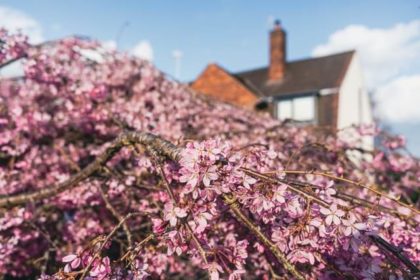Have less so you can have more. In a nutshell, that’s the core of minimalism. Living free of things that don’t bring any value to your life and focusing on what matters.
You see minimalist aesthetics all over social media, in your doctor’s office, or in your favorite coffee shop.
Even I have followed the examples of famous influencers and content creators to see where the secret is.
Is minimalism worth it? Or better yet, can it make you happier?
What is a Minimalist Lifestyle?
My story with minimalism started a few years ago while I was still in college. My room was under piles of paper, notebooks, books…
I was drowning in a sea of clutter. I needed something to breathe. Then I discovered the art of living with less. But I didn’t stick to it.
But what is minimalism?
Well, that confuses me to this day. The only thing I can tell you is that the definition of minimalism is very self-explanatory. At least according to one part of the minimalism community.
Let’s see what the founders of this movement, Joshua Fields Millburn & Ryan Nicodemus say about minimalism:
Minimalism is a tool that can help you find freedom. Freedom from fear. Freedom from worry. Freedom from overload. Freedom from guilt. Freedom from depression. Freedom from the traps of consumer culture around which we have built our lives.
It’s the anti-consumerism approach to life. Capitalism has taught us we need things to be happy, but the Minimalists tell you that material possessions can’t make you happy.
Can I Call Myself A Minimalist?
It makes sense. If we own fewer things, we have more time to spend it on the things we enjoy. Not things but people, experiences, and self-growth.
The philosophy of minimalism is nothing new. We just commercialized it in the post-recession world.
The minimalistic mindset is about mindful consumption and intentional life choices. It’s more than white walls, tiny houses, and obsessive decluttering. Or at least it should be.
Google “minimalism”. You’ll notice that it comes with a spectrum. Here are a few types of minimalists:
- The aesthetic minimalist
- The essentialist
- The experientialist
- The enoughist
- The eco- minimalist
- The spiritual minimalist
- The nomad minimalist
- The digital minimalist
So, what’s the threshold then? Can we consider any conscious buyer a minimalist? Can people who practice minimalism in small areas of life be self-proclaimed minimalists?
Or do they need the stamp of approval from hardcore practitioners?
The label of minimalism seems to be very individual. And even if the minimalists themselves can’t agree on whether someone is a minimalist, we should stop labeling every lifestyle that exists.
The Other Side of the Consumerism Coin
Not being attached to material stuff. Having more time. Caring for the environment. Saving money. Being less stressed. These are significant benefits of minimalism. Simplifying your life is a tool to help you build the life you want. It’s not getting rid of stuff just for the sake of social media’s popularised asceticism.
But by removing the things you don’t want or don’t need, you become dependent on the very few things you own. So, you aren’t free of stuff, are you?
You might be wondering, how do you maintain a minimalistic lifestyle?
For one, as someone who has attempted the whole thing, it’s pretty time-consuming, hard, and not to mention expensive.
I was keen on doing it properly. Capsule wardrobe, one mug, one plate, no sentimental things.
Let me tell you this. Washing machine running on a half load? Not eco-friendly (and you can’t mix the whites and colors, or in this case, neutrals). Buying jars and containers cost a lot more than leaving food in its original packaging. The clothes I donated, 80% of it will never be put up for sale again, so it’s just accumulating waste.
Minimalism isn’t the opposite of consumerism- you are owned by your stuff, you just have less of it.
What Should I Keep?
Decluttering videos are the most calming thing ever. And doing it yourself feels great. I finally got rid of my junk, yeah.
But how do I know what to get rid of while decluttering? And what to keep?
Essentially, you can keep what sparks joy (as Marie Kondo teaches us). Pick up every item you own and ask yourself: Does it spark joy? Do I need it? Do I love it?
Here’s the problem with the popular KonMari method. Your needs change. I don’t need that coffee machine now, but who knows, I might be into coffee again someday. Should I put it in a box and leave it in the basement? Well, that’s isn’t minimalism, is it?
You shouldn’t feel bad about having stuff you don’t need right now. Once in a while, purge your possessions. Decide what you want to keep. That’s the whole point. Decluttering is just a fancy word for throwing away garbage. And most of us have been doing it already.
And Marie Kondo, you’re awesome and I enjoy watching you, but no way in hell am I throwing away my old torn plush toys.
Voluntary Simplicity vs. Lack of Choice
Quality over quantity, baby. Don’t get me wrong, I’m all for intentional shopping. I’m all for ditching fast fashion. I’ve been thrifting for some time now. You can only find awesome 80s and 90s fashion pieces in secondhand stores.
Polished Youtube videos and Instagram feeds give us this vibe that the minimalist approach has certain rules, but those can be hard to uphold. It requires you to choose high-end luxuries over cheap things that get made by children in developing countries.
But here comes the thing we have to talk about. Privilege.
Over 600 million people across the world live in extreme poverty. For them, having less is not a choice. For six-figure earners who finally see that money can’t buy them satisfaction, it’s voluntary.
On that note, when referring to us, millennials, who are the movement’s target audience, look at this:
According to the Experian 2020 State of Credit report, the average millennial consumer has about $27,251 in non-mortgage debt, and millennial homeowners have an average mortgage balance of $232,372. (cnbc.com)
When there’s no safety net, it’s hard to think about whether your choices are sustainable.
And I agree with Chelsea Fagan (The Financial Diet). Managing your finances and spending money wisely doesn’t have to be inspired by some spiritual anti-capitalism movement. Having to live with less is maybe not the reality you and I have to face, but a fair amount of people have to live with less every day. Can we stop fetishizing poverty, please?
The Community Around Minimalism
Researching the minimalist online community (particularly on YouTube and Instagram), I’ve come to the following conclusions:
- There are people supportive of your choices and don’t care if you’re a low-key or a strict minimalist.
- It works best for single people, people who move a lot, and digital nomads.
- Families? If you’ve seen at least one episode of “Tiny House Nation”, it can be pretty painful to watch.
- It somehow becomes your personality.
- It almost feels like joining a religion when you’re just starting out.
There are many supporters of minimalism whose content is of high-quality and not pushy. (Shout out to Rowena Tsai and Nathaniel Drew).
Many folks get thrown off when entering the minimalist lifestyle. As I’ve mentioned, most people will tell you that minimalism is a no-size-fits-all. But let me ask you, who gets more media attention? Well-off influencers who advise you to get rid of all the books you’ve never read, but hey, buy my book.
And of course, you are going to do what the influencers tell you if you’re a newbie.
When a certain lifestyle gets imposed as morally superior, it becomes toxic.
You ain’t doing it right, sister, if you can’t fit your life into a backpack.
Are Minimalists Happier?
If it leaves you frustrated, it’s not for you. That’s how I decided that minimalism wasn’t for me. I’ve kept some principles of digital minimalism, but other than that? Nah.
The point of minimalism isn’t about getting rid of everything (unless you want to). It’s not a magical cure for unhappiness.
I started decluttering because of the mess in my head, not the mess in my room. Minimalism gives you a feeling of being in control, clarity, and self-awareness. But only for a short time.
Our brains don’t like messy environments, our brains like order. But it doesn’t cure anxiety, depression, or other mental health issues.
Hyper-minimalism can cause obsessive behavior. Decluttering can be addictive, just like hoarding.
Taking care of your mess is great for your well-being, but it’s not a promise of long-lasting happiness.
Is Minimalism Good or Bad?
Depends on who you ask. Don’t ask me. (I’m currently re-watching Cody Ko and Noel Miller and there are like 3 dirty mugs on my desk.)
The internet calls someone like me a maximalist. (Kinda loving it, to be honest. Have you seen Paris studio apartments on Pinterest?)
Do your research, don’t spend money on shit, and take out your garbage. That’s all, folks. That’s all I can tell you.
Cover image: by Nathan Oakley on Unsplash



